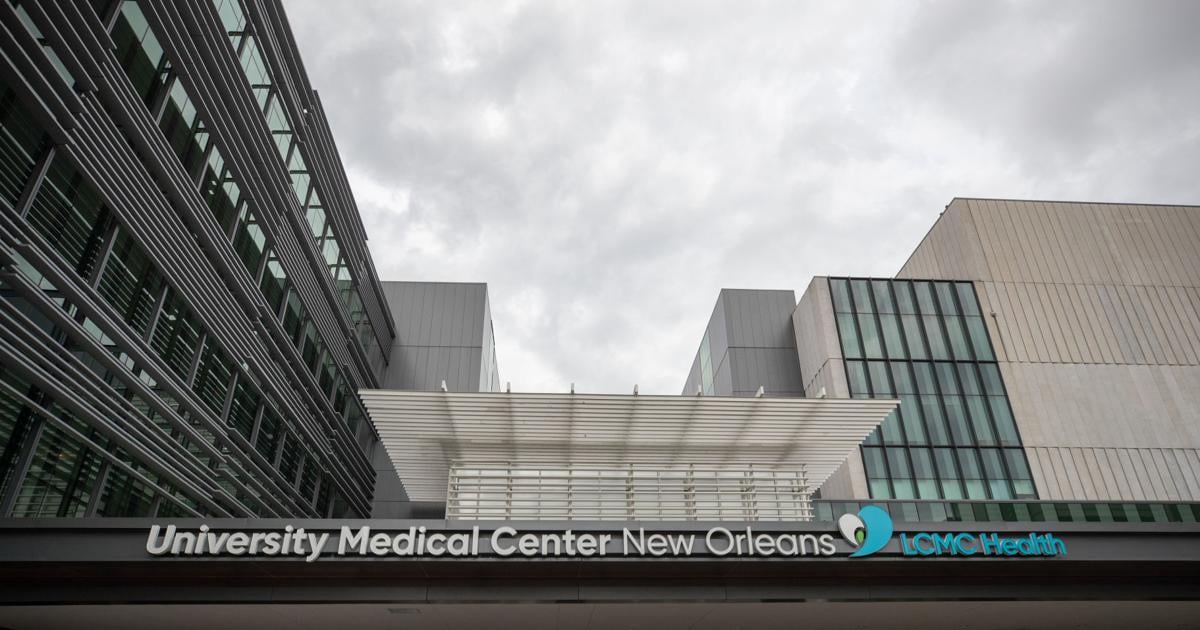Unitedhealthcare, Louisiana’s second-largest private health insurance provider, warned customers in a letter that LCMC Health hospitals could be dropped from in-network coverage, forcing patients to pay higher costs, if the two sides can’t quickly agree on a new contract.
The letter, which comes as UHC and LCMC are engaged in high-stakes negotiations over how much local hospitals will receive for their services from the insurance giant, was sent earlier this month to UHC customers who were treated at LCMC facilities and enrolled in employer-sponsored plans.
UHC told its customers that without a deal, LCMC hospitals would be treated as out-of-network care starting on Nov. 1 and suggested that patients could turn to rival hospitals operated by Ochsner Health for in-network care.
“We are fully committed to engaging in productive, good-faith negotiations,” Unitedhealthcare said in the letter. “However, if we’re unable to reach an agreement, LCMC Health may no longer be part of your health insurance’s network.”
Stephen Wilson, UnitedHealthcare’s CEO for Louisiana, said in a prepared statement that LCMC was seeking significant cost increases that would be borne by consumers and employers. The company argued that medical procedures would become more expensive for families and employers.
In its own statement, LCMC Health said the hospital system has “absorbed significant increasing costs with no increases in reimbursement” over the last two years from UHC.
The hospital system said it is seeking “increases over multiple years to make up for chronic and long-time underpayments.”
LCMC added that adequate reimbursement does not force UnitedHealthcare to pass through those costs to their members, but is a choice the insurer makes.
LCMC operates eight hospitals in the New Orleans area: University Medical Center, Manning Family Children’s Hospital, East Jefferson General Hospital, West Jefferson Medical Center, Lakeside Hospital, Lakeview Hospital, New Orleans East Hospital and Touro Infirmary.
United’s current contract with LCMC runs through Oct. 31, 2025. Without a deal, LCMC hospitals would be out-of-network for people enrolled in employer-sponsored commercial plans, Individual Family Plans and UMR.
LCMC physicians, urgent care centers and ancillary providers would remain in-network for those commercial plans regardless of the outcome, though hospital facility fees and services would not be covered. Patients on Medicare Advantage or Medicaid would not be affected.
Out-of-network care is often still covered in part by insurers, but the out-of-pocket costs for patients can be significantly higher than in-network providers, in some cases by thousands of dollars. Under some plans, out-of-network hospitals may only be covered in emergencies.
‘Playing chicken’
Unitedhealthcare said a failure in negotiations would impact fewer than 30,000 members.
In interviews Monday, researchers who study the health care industry said that despite the warnings contained in UHC’s letter, these types of negotiations are common. Insurers and hospitals regularly renegotiate their terms, sometimes annually.
“They’re playing chicken,” said Ge Bai, a professor of accounting, health policy and management at Johns Hopkins University.
Walter Lane, a health care economist at the University of New Orleans, said it is not unheard of for insurers to walk away from the bargaining table, and pointed to East Jefferson General Hospital’s failed negotiations with Blue Cross Blue Shield several years ago, before the hospital became part of LCMC.
When East Jefferson terminated its contract, “all of a sudden East Jeff started losing a whole bunch of all of its Blue Cross customers,” he said. The hospital and the insurer eventually came to an agreement.
After purchasing three HCA Healthcare hospitals in 2023, LCMC has more negotiating power than it used to. Unitedhealthcare also makes up a smaller share of the market, about 20% compared to 61% for BCBS, according to a 2024 report from the American Medical Association.
“(LCMC) might be trying to flex some of their muscle,” Lane said, while Bai noted that LCMC’s purchase of HCA should make it “stronger at the negotiating table” to get a bigger reimbursement from the insurer.
Rising costs for patients
Regardless of what deal United and LCMC reach, health care costs are likely to keep rising for patients, as they have nationwide.
The Congressional Budget Office has said that higher provider payment rates consistently result in higher insurer spending.
In its letter to customers, UHC said that most of the proposed cost increases that LCMC is seeking would fall on self-insured employers, which pay employees’ health claims directly. United said about 70% of its commercial members in the New Orleans area are enrolled in such plans.

